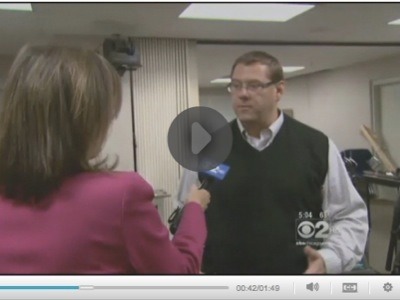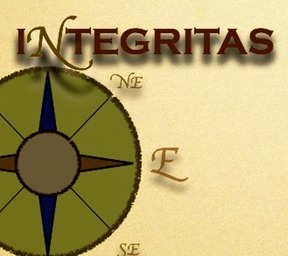
Saturday, October 6, 2012
By Timothy Janowick
When the media comes calling asking questions, are you prepared to provide the answers? A few lessons I learned about interacting with news reporters created the difference between a good story getting lost as a result lame preparation and a great story being related to the public by reporters.
Over the last nine months, the community where I am employed experienced a number of burglaries. Our investigators, stymied for several months without viable leads, developed suspect information an began surveillance. After several weeks, the investigators swopped in, made arrests, and recovered nearly a thousand individual stolen items tallying in the tens of thousands of dollars. The capture of the burglars proved important for three reasons: a crime spree ended and the victims would be able to recover their stolen property, the public could be reminded of risk management practices to mitigate the chance of becoming victimized by criminals, and the closure of the case presented an opportunity to relate a story of good police work.
Wanting to make sure people heard the story of our investigators, I crafted and issued a press release expecting the story to appear in the newspapers the next day. I did not, however, expect the news media - newspapers, radio, and television - to promote the story at greater lengths. As a result, I conducted interviews with a local news radio station looking for soundbites to enhance their reporting of the story, several newspaper reporters seeking additional and more detailed information, and two television news crews seeking to put together a great package story about these events.
A novice in media relations, every interaction provides an opportunity for me to learn and develop my communication skills with reporters. Here are a few takeaways I have after my experience this week:
- Know your subject matter. Prior to issuing the press release or speaking with the radio and television stations, I interviewed the investigators and their supervisors to develop talking points and determine what information they did not want released. I did not want to be left without an answer to a reporter’s question.
- Create a package. Roseann Tellez, a CBS Channel 2 news anchor, sought a package and we delivered by providing access to department representatives for interviews, access to the recovered stolen items to record B-roll footage for use in the story, and locating a victim willing to talk about their experience on camera. Packages make the story more interesting and complete when aired - and make reporters happy.
- Provide soundbites, not monologues. The task of providing soundbites is trickier than one might think. Considering I am used to teaching in front of large groups, I found myself engaging in long responses at times. Keep the answers short; the reporters are crafting a story whose airtime will be a mere 90 to 120 seconds. The reporters are looking for snippets to weave into the story they will tell.
- Expect different reporting styles and adjust accordingly. NBC Channel 5 news reporter Phil Rogers approached the process of constructing a story with a different perspective and process. I appreciated the differences in the methods used by Tellez and Rogers. Tellez asked questions in spurts with different camera angles and backgrounds as she built her story. Rogers asked a series of successive questions in one shoot of the interview. Just as we have different tactics to apply to the same situation, the reporters also have different tactics to reporting the same story. Adjusting accordingly created a cooperative environment between the reporters and me.
- Build relationships. In the process of building the story for the news, I realized this was not just about “our story” nor was it just about “their story.” Collaboration and cooperation was required on both sides. Taking the opportunity to build relationships with the reporters during these good news stories will hopefully help me in the future with the bad news or controversial stories. The professional rapport and interchange allowed us to become a little more comfortable with each other and opened the doors for future reporting.
Five lessons I learned in the past week dealing with the media will help me in future news media interactions. This good news story proved to be a perfect event on which to “cut my teeth” in media relations. Hopefully they will help me in future interactions with our news media community partners.
